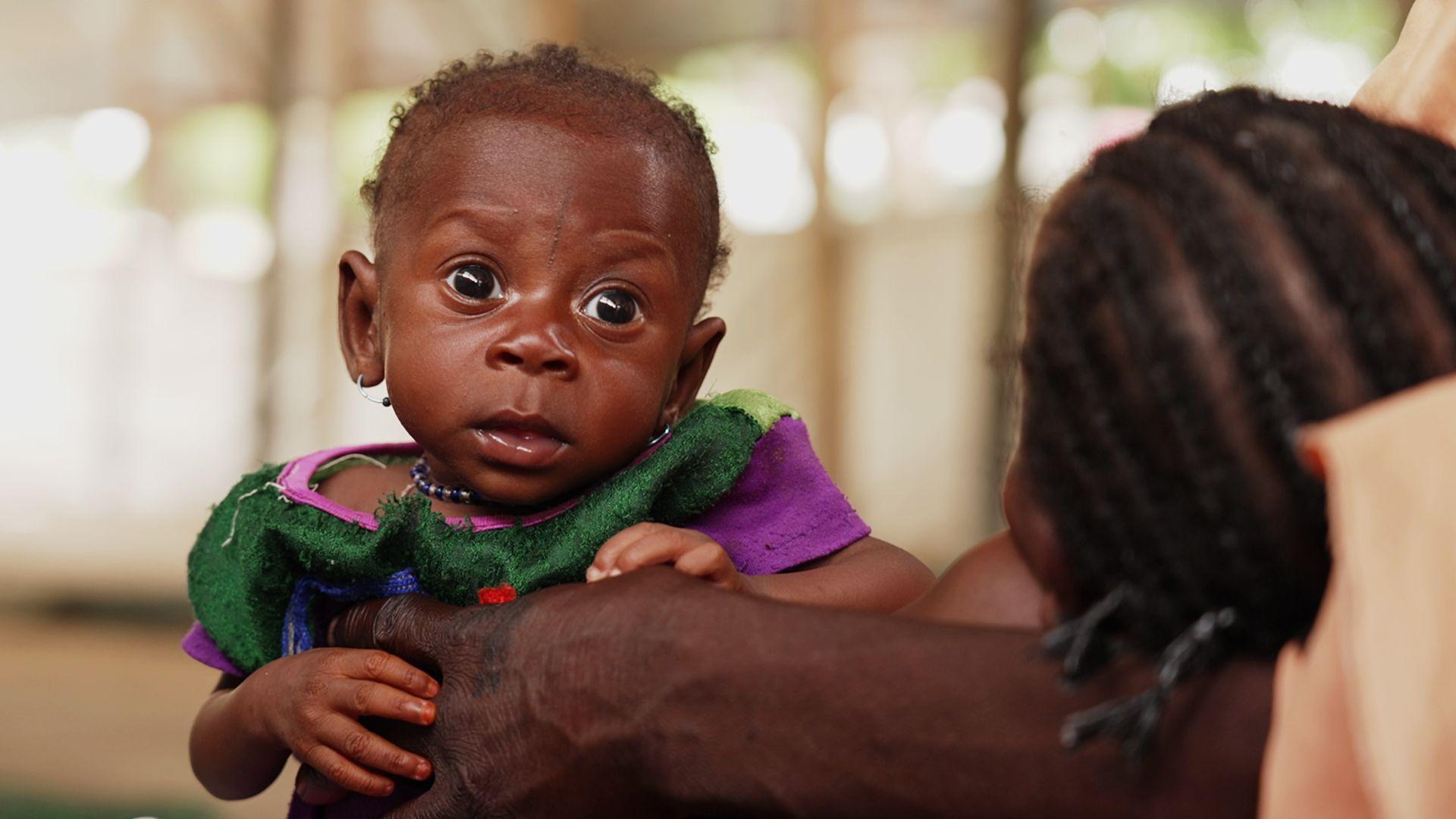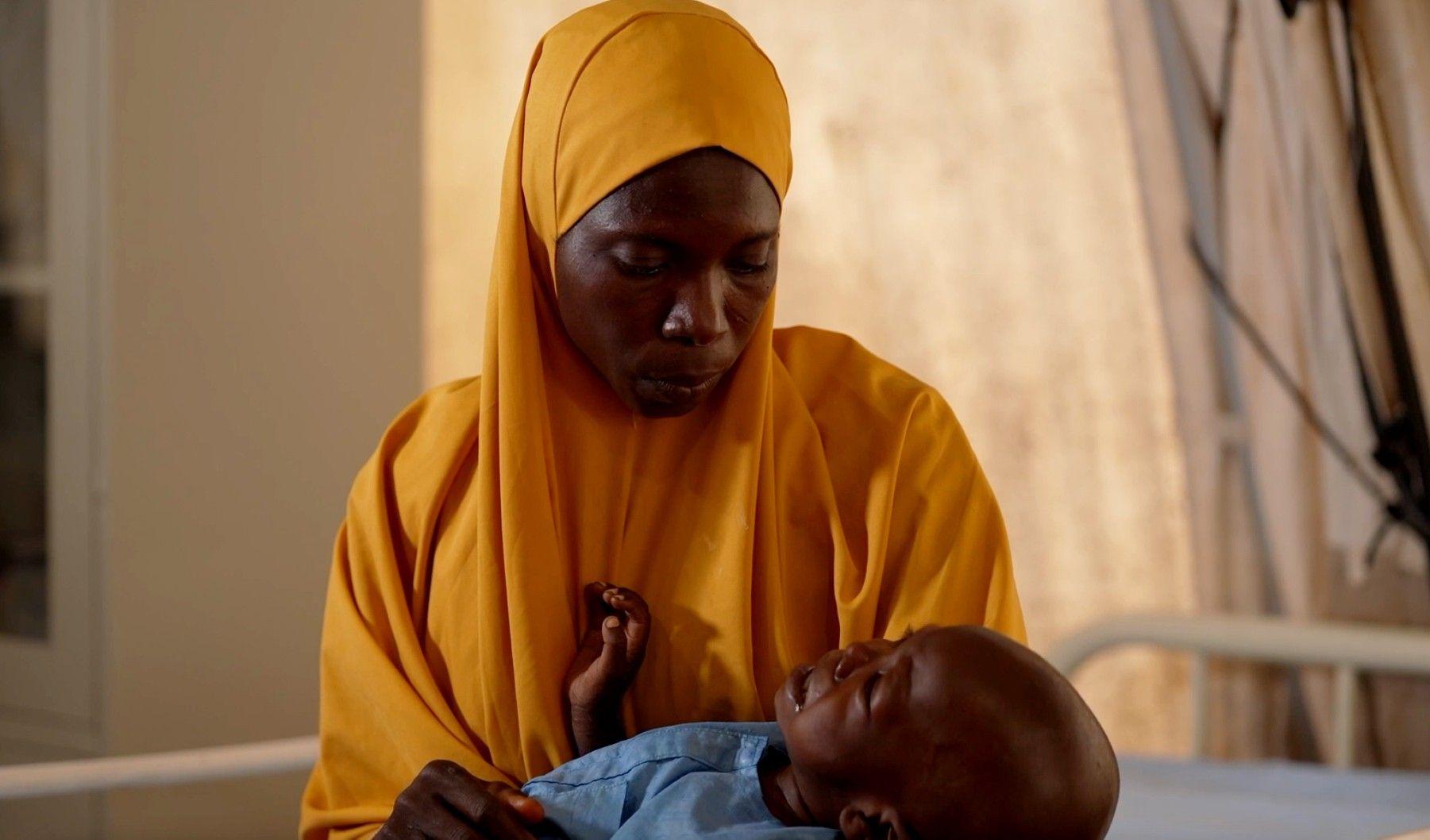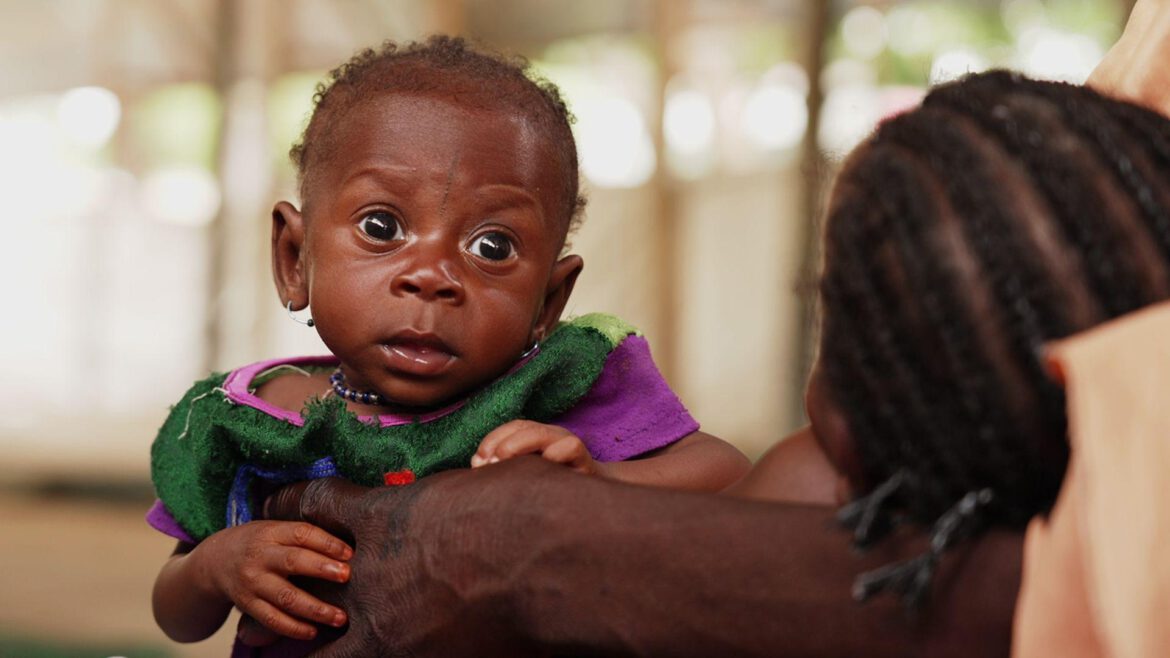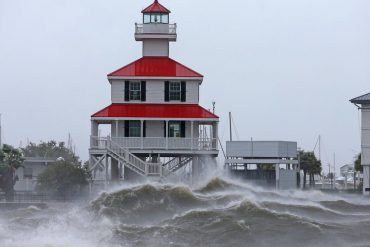
On days wey I find food, di babies fit eat, but on days I no get to eat, dem go dey suck,” na so Murja, a married Hausa woman in her mid-twenties wey get two small pikin to keep alive, tok.
Murja live for a rural area close to Katsina City FOR northern Nigeria. She recently adopt anoda pikin, seven-month-old Ummi, her niece, after Ummi mother die. Since den, both babies dey struggle. Murja say her older pikin bin dey try learn how to waka but sake of hunger e don give up.
Di family no get electricity and dem dey live in di middle of bushland for house dem use sand blocks build. E no get ventilation and e dey veri hot. Murja dey survive on one small meal a day wey don decrease her breast milk supply.
“E dey pain me to see oda pikin dem dey look chubby and healthy, but Ummi just dey get smaller by di day,“ she Tok.
Acute malnutrition
Di scale of malnutrition across northern Nigeria dey devastating and unprecedented wit 4.4 million children under five, and nearly 600,000 pregnant women acutely malnourished, according to di United Nations World Food Programme.
Di situation dey rapidly escalate: di number of acutely malnourished children don more dan double since dis time last year, according to WFP.
Médecins Sans Frontières’s Medical Director, Catherine Van Overloop, say for some northern regions, malnutrition cases don almost double.
“Dis children fit face developmental and cognitive issues,” she tok as she warn of di long-term impact.
- Hunger, high cost of living dey force Nigerians to protest
- We no fit feed our family again – Nigerians lament high cost of food items
- Africa biggest economies dey show size but no dey translate to beta lives as Nigeria drop to number 4
“Dem fit no reach dia full potential height; dia brains fit no develop fully; dem fit get issues concentrating in school. And dis na di future of Nigeria, dis children.”
Wetin trigger di crisis?
Nigeria dey face extraordinary food shortage crisis nationally. A total of 25 million pipo get food insecurity for October-December 2023. Dis figure dey projected to rise to 32 million pipo between June to August 2024, according to WFP data.
But na northern Nigeria wey dey see di worst of di crisis. Here, protracted violence and conflict na di biggest drivers of malnutrition.
For over a decade di northeast na di epicentre of di Boko Haram insurgency, Nigeria militant Islamist group wey dey partly allied to ISIS. Di group don kill and abduct thousands of ordinary pipo and force millions more to runaway from dia homes for oda parts of Nigeria and neighbouring Niger, Chad, and Cameroon.
While di Nigerian security forces dey focus on Boko Haram, decades-old violence between farmers and pastoralists, theft, and cattle rustling don also deteriorate into widespread lawlessness.
Ova di past eight years, dozens of armed criminal gangs – known locally as bandits – don kidnap pipo for ransom with many murdered, raped or maimed. Dis extreme violence don force hundreds of thousands of pipo – mostly farmers and herders – from dia homes.
Dis situation don become worse by climate change as rising temperatures don worsen poor harvests and soil quality.
Dis year, di lean season wey be di period between harvests, bin come early and locals say na di most severe for seven years.
Nigeria also dey in di grip of soaring inflation, wey don drive up di cost of evriday items such as food and fuel and e dey cause national cost-of-living crisis.
Destabilising West Africa?

Di security and food crisis for northern Nigeria fit get a direct knock-on effect for dia West African neighbours, according to analysts.
“E fit increase food insecurity across oda West African kontris, leading to increased malnutrition, migration and displacement, and potentially spreading insecurity and extremism across di region,” na so senior analyst for Extremism Policy Unit of di Tony Blair Institute for Global Change, Bulama Bakarti tok.
“Humanitarian organisations go need to redirect limited resources, wey go worsen oda regional crises and health risks and political instability fit escalate as a result,” e tok.
International aid agencies like Médecins Sans Frontières (MSF) warn say funding to meet dis growing humanitarian crisis dey vastly insufficient.
“We don repeatedly express our concerns to di UN and donors about di alarming and deteriorating humanitarian crisis for di northwest,” na so Ahmed Bilal, MSF’s head of mission tok.
Meanwhile di United Nations children’s fund (Unicef) dey forced to scale-down dia efforts from 23 to 14 local goment areas (LGAs) for Katsina state although dem dey try to raise more funds.
‘Di bandits don seize evritin’
Di BBC don report di effect of increased lawlessness and insecurity for northern Nigeria.
“Bandits invade my home and seize our farm,” na so Jamila, a farmer in her late twenties tok wen she bin dey tok for one MSF malnutrition clinic for Katsina.
Several days earlier, Jamila bring her baby son Aliyu to di malnutrition clinic in desperation. She say im body swell up and di hospital no fit help am.
“We no dey different from beggars now, di bandits don seize evritin. My previous life bin dey veri good, we use to sell our harvests and also eat from di farm,” she tok.
On many days di mother-of-three dey survive on cassava flakes.
Like Jamila, most pipo for Katsina na farmers wey don dey driven off dia land and lost dia livelihoods.
“I bin get so much bifor – maize, guinea-corn, cotton and many cattle,” na so Alhaji Abubakar wey dey live for one informal IDP camp area wit im 23 children and three wives tok after dem bin dey forced off im land by bandits.
Di large family dey live togeda for one house wit only one toilet and little privacy. Dem only fit afford to eat once a day.
“For pesin wey bin dey give away food, now na me dem dey assist wit food, dat na enof reason for my heart to explode,” e tok.
Di unofficial camp wia im dey live also dey house hundreds of oda internally displaced pipo from Katsina State. Poor living conditions across oda similar camps don lead to outbreaks of malaria, cholera, and measles according to aid group Smiling Heart Initiative International.
“I really wish di goment fit help us fix di security issues so we fit go back to our farm. Dat wan go make me veri happy,” Mr Abubakar tok.
Preventing a disaster
To get on top of di crises, di Nigerian goment gatz take urgent action to increase access to food, vaccinations and malnutrition treatments, na so Médecins Sans Frontières’s Catherine Van Overloop tok.
“We dey plead for more vaccination campaigns,” she tok, as she add say access to clean water also dey urgent to prevent diseases like diarrhoea and measles wey dey spread among younger children.
She say MSF dey tok wit Nigeria Ministry of Health and a technical team dey set up to see how dem fit tackle dis issues.
But di Deputy Governor of Katsina State, Faruk Lawal Jobe, no gree say acute malnutrition among di under-5s and mothers dey rise for im state.
Im say di numbers wey international aid agencies dey give no dey accurate and stress say im team dey take all necessary measures to tackle insecurity and lack of food.
“We don start procurement of assorted grains, [offering] highly subsidised prices and some for free. We recently conduct a huge operation for Katsina wit synergy between all of Nigeria security forces for di first time. We dey able to clear di camps wia bandits hide so pipo fit go back to dia farms,” e tok.
Di Nigerian Army also say dem don increase operations against armed gangs.
“We don re-strategise di national fight against di bandits, so we fit protect our farmers so dem go fit return to dia farms in order for food insecurity to dey tackled,” na so army tok-tok pesin, Group Captain Ibrahim Ali Bukar tok.
“We no fit mention di exact steps for security reasons, but change go dey visible soon.”
But, for children wey dey starve, like Ummi, dis change fit dey come too late, as Murja say she feel alone and abandoned.
“All I wish na for my two daughters to grow up healthy and to become successful in life.”








